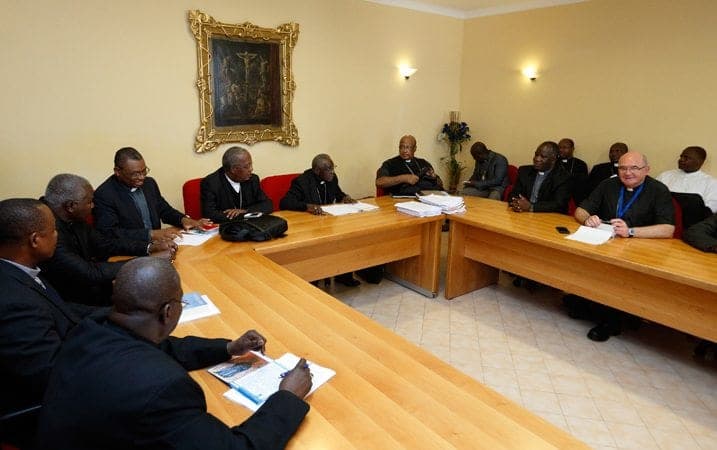ROME — Historians will tell you that in the early centuries of Catholicism, it was often African bishops such as St. Augustine of Hippo who forged the future of the faith. Judging by the first half of the Oct. 4-25 Synod of Bishops on the family, it seems that many African prelates today want their old job back.
The 54 Africans at the synod, representing a rapidly growing 15 percent share of the world’s Catholic population, arrived in Rome at the beginning of the summit with a 90-page dissection of the Instrumentum Laboris, a document released by the Vatican earlier in the year to serve as the basis for discussion during for the three-week gathering.
Called “The Future of the Family, our Mission,” the African analysis was published by SECAM, the African Bishops Conference, and is the result of a meeting of prelates and experts from across the continent held last June in Ghana.
It pays particular attention to some of the issues African families face that were mentioned in the Instrumentum Laboris only under the heading of “other special challenges,” such as polygamy, which is still widespread in many African countries.
One theme running through the document is that African concerns merit as much attention in the synod as better-known Western debates.
On divorced and civilly remarried Catholics receiving Communion, for instance, the African prelates call it “a real problem to which the Church must pay attention.” They add, however, that the Church “must not to lose sight of the fact that this issue is not a major problem of marriage everywhere in the Church today.”
For this reason, they argue that “It deserves a particular attention just as much as other challenges relating to conjugal union.”
The Africans say that for them, polygamists not able to access the sacraments because they can’t regularize their situation is more common than divorced and civilly remarried believers.
Naturally, not everyone among the 270 bishops taking part in the synod agrees that its focus is skewed in favor of the developing world.
“There is no Westernization,” Italian Cardinal Edoardo Menichelli said during a Vatican briefing Oct 8. “In listening, I’ve had the clear sensation that the challenges, problems, and perspectives are strikingly similar in many ways.”
Regarding a more welcoming and less condemnatory language when talking about gays and lesbians, the African bishops also object, saying that the question “is not alarming on the continent as a whole.”
The African prelates decry an “external pressure of lobbying which violently is going against our culture, against the rights of our people, and against the auto determination of ethical questions.”
On another front, daily Vatican briefings have indicated that some participants in the synod support a more decentralized approach to questions such as the divorced and civilly remarried, allowing it to be resolved by regional or national bishops’ conferences or by local bishops.
Here, too, some African prelates disagree.
Nigeria’s Cardinal Francis Arinze, still a strong African voice even though he’s not taking part in the synod, defined such proposals as “nationalizing right and wrong.”
“Are you going to tell me that we can have a national bishops’ conference in one country that would approve something which, in another conference, would be seen as sin?” Arinze told Crux.
“Is sin going to change according to national borders? We’d become national churches.”
Yet Africans aren’t presenting opposition for opposition’s sake.
“We’re not here to block anyone,” said Ghanaian Archbishop Charles Palmer-Buckle.
“If someone thinks Africa is blocking something, it’s only proposing what we feel,” he said.
Speaking to the Catholic News Service, Nigerian Bishop Jude Arogundade acknowledged that “people came with the idea that we are really going to fight to protect the doctrines of the Church.”
“My perception of the focus of the synod changed a little bit,” he said, “after the Holy Father gave the explanation that we are not talking about doctrinal issues here, we are talking more of pastoral issues.”
According to New York Cardinal Timothy Dolan, the universal Church is learning from the African voice.
Speaking to Crux, he described African prelates as “people who have an immense pastoral experience, who have a sense of the Church that has been tried by suffering and cultural opposition, and who now have a wisdom and an experience that I find breathtaking.”
As African prelates strive to shape the synod’s discussions, they do so with support from the Synod’s general relator.
“The voices of the African bishops will be heard!” said Hungarian Cardinal Peter Erdö when speaking to journalists after delivering the synod’s opening remarks.

















